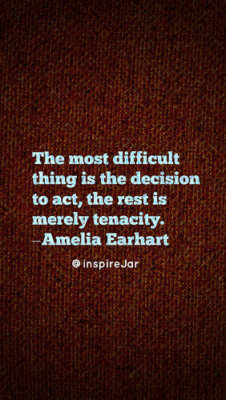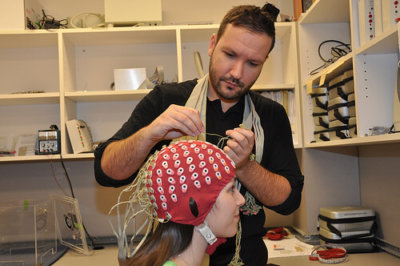Is a Counselling Psychologist the Right Therapist For You? How to Tell

By: michal
Want to try therapy but struggling to understand what therapist is right for you?
It’s hardly surprising given the array of titles therapists can come with nowadays. Between counsellors and psychotherapists, psychiatrists, coaches, and the various types of psychologist, where to start?
What is a counselling psychologist?
Counselling psychologists utilise talk therapies to help you deal with any life challenges or psychological issues you might be struggling with. They support you to feel better about yourself and to make choices that move you forwards.
What issues can a counselling psychologist help me with?
A counselling psychologist can help you with any general psychological and emotional issues and challenges, such as:
- anxiety and depression
- relationship issues or family issues
- workplace stress
- bereavement
- addiction
- life changes or life crisis
- sleep problems
But how are they different than a psychotherapist or counsellor?
In the UK, counsellors, psychotherapists, and counselling psychologists are more alike then dissimilar. They all work to help you with life challenges and emotional issues using talk therapy.
You can read a thorough explanation of how a counselling psychologist is different in our piece, “What Exactly is a Counselling Psychologist?“
But for the purpose of this article, we’ll point to the largest difference.
C0unselling psychologists have a different training path into being a therapist than a counsellor or psychotherapist. After a degree in psychology they decide to specialise in working with clients and go on to take a masters in counselling psychology, where they then learn about the psychotherapeutic approach and working one-on-one with clients.
So counselling psychologists come from a more scientific background that psychotherapists and counsellors, whose training instead focuses on the client-therapist relationship and psychotherapeutic approaches.
[Our piece on the Different Kinds of Therapists is a more in-depth read on this.]
Is a Counselling Psychologist the Right Choice For Me, Then?
On paper, it would seem that a counselling psychologist would be the perfect fit for someone who wants a more scientific, methodical approach and who themselves is very rational.
But in reality, it isn’t so cut and dry.
Firstly, there are different schools of therapeutic thought that a counselling psychologist can use or specialise in, another variable that comes into play when choosing the best therapist for you.
And then counselling psychologists are people, so they are all going to be different, with unique personalities and ways of being that may or may not work for you.
Therapy is at heart a relationship – research shows that the client therapist relationship is one of the most important predicators of how effective therapy will be for you. So yes, the kind of therapist does bear some weight. But often it’s how well you work with the therapist, and if their approach and school of thought is right for your unique issues, that can bear more relevance in the long run.
For example, a counselling psychologist who works mostly with CBT and is quite a cool and collected sort might not work for you if you are highly sensitive or have borderline personality disorder. But a warm, connected counselling psychologist who offers schema therapy, on the other hand, might be the perfect fit.
I feel even more at a loss than ever over what therapist to choose….

By: Inspire Jar
The first thing to do when looking for the ‘right’ therapist is to not let perfectionism be a way to sabotage starting therapy.
Then learning about the different kinds of psychotherapeutic approaches can help. For example, CBT is great for anxiety, but if it’s an old childhood trauma that is bothering you, psychodynamic psychotherapy might be more appropriate. Or, look for an integrative approach – where your psychologist is trained in several schools of thought and can use what works for you.
Keep in mind is that therapy is not a jail sentence. If anything, a better analogy is that of dating. It might take a few tries to find a good therapist for you, and if a therapist doesn’t feel the proper fit, you don’t have to continue (read our piece on Changing Your Therapist first, though!)
Look for consummate professionals. A good therapist will be certified with the right governing bodies and have several years of experience.
Then ask good questions in your first session. What is his or her training? Have they dealt with issues like yours before? What had them decide to be a therapist? You deserve to know if they like their job and can help you.
So then is a counselling psychologist right for you?
A counselling psychologist is really the right therapist for you if:
- they use psychotherapeutic approaches that work for your issues
- they have experience at dealing with your issues
- you feel comfortable in the room with them
- you see them as someone you could learn to trust
- you think it’s important someone has studied psychology over just psychotherapy.
Still have questions we haven’t answered? Or want to share your experience of working with a counselling psychologist with other readers? Share below.






Hi all, I want to work in counselling and psychotherapy and was wondering if I should take the shorter route and study psychotherapy directly or take the counselling psychology one (conversion course then a doctorate degree) which is longer? in other words, is their an advantage of counselling psychology over psychotherapy?more knowledge or higher credibility?
Thanks,
Amr
Hi Amr, we are assuming you are in the UK, as that is what we are going to talk about here. If you aren’t, you’ll have to research the way it works in your country, as America, for example, has a different system entirely. Here in the UK there is no ‘higher credibility’ between psychotherapy and counselling psychologists, they are both very good qualifications. If you are worried about credibility and having the most knowledge, though, you might want to go the psychology route. Being a psychotherapist is all about being driven to help people. It’s a difficult job, you need to be committed to the cause or, no matter what your education, you will not make a good therapist. Yes, education and training is very important, but therapy is at heart a relationship. If your priority is not your clients, you will not be helping you or them. If you are more interested in knowledge and having an esteemed job, psychology gives you more options. You can, for example, decide to veer into clinical practise and research, or working for large organisations. So don’t make the decision based on saving a bit of money and getting a degree in less time but what your goals are. A psychotherapy degree will be relatively useless if helping others isn’t your true drive.